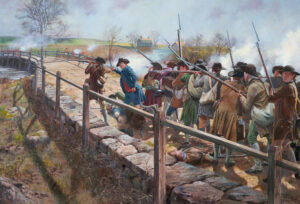By Samantha Dorn
Ben Salomon was born in Milwaukee, Wisconsin, on 1 September 1914. He was awarded the Congressional Medal of Honor on 1 May 2002, approximately 58 years after the heroic actions that earned him such an honor and brought about his death. Salomon’s extraordinary character and dedication to his fellow soldiers before and during World War II remain inspirational examples of courage to all.
Salomon began his undergraduate education at Marquette University in Milwaukee. He later transferred to the University of Southern California and graduated from the USC Dental College in 1937. Salomon had just begun his career in dentistry when the draft board requested his service and induction into the United States Army. He was first assigned to the 102d Infantry Regiment, where his natural abilities as a soldier and leader first began to be apparent to his superiors, and he received several awards. He soon became a sergeant in charge of a machine gun section, and in 1942 he was commissioned as a first lieutenant in the Dental Corps. In May 1943 he became the regimental dental officer for the 105th Infantry Regiment, 27th Infantry Division.
His first experience in battle came in June 1944, following his promotion to captain, when he went ashore on Saipan in the Marianas Islands with the 105th Infantry. He soon found that there was little need for his skills in dentistry so, when the 2d Battalion’s surgeon was wounded later that month, Salomon volunteered to replace him. As the 105th’s 2d Battalion suffered heavy losses (as high as fifty percent), Salomon was continuously busy tending to the sick and wounded.
As American forces worked to establish control over the remainder of Saipan, the 2d Battalion dug in on the far left line of the coast near Tanapag on 4 July. The battalion was able to make some advances, but the remaining Japanese troops put up stiff resistance.
On 6 July American intelligence reported that the Japanese were planning to attack that night. In anticipation of the assault, Salomon’s battalion established a series of foxholes protected by artillery so that they would be prepared when the enemy arrived. At about 0500 the attack came, as thousands of Japanese soldiers made a final effort to kill as many American soldiers as possible, despite the shortage of weapons on the Japanese side.
The 2d Battalion was successful in killing many of the enemy, but the Japanese continued to advance. As the fighting went on, an increasing number of wounded American soldiers were brought into Salomon’s aid station tent, located behind the perimeter of foxholes. As he worked, several Japanese soldiers managed to get inside Salomon’s tent. Salomon shot the first enemy soldier, who had bayoneted a wounded American, clubbed the next one, stabbed the third with a knife, and head-butted the fourth.
As Salomon realized how desperate the situation was becoming outside the tent, he ordered his medical assistants to take the American wounded from the tent and try to get as far away as possible. Armed with a rifle, he stayed behind with a few other soldiers and attempted to keep the Japanese at bay as long as possible in order to ensure a safe evacuation of the wounded. When the soldier manning a machine gun was killed, Salomon took over.
It was not until 8 July that the positions of the 1st and 2d Battalions of the 105th Infantry were re-established and Ben Salomon’s courage discovered. Salomon’s body was found behind the heavy machine gun where he was last seen, with the bodies of ninety Japanese soldiers lying in front of him. He had apparently been shot twenty-four times before he died, and even after being wounded, he continued to move the machine gun in order to get a clearer position for firing.
When Salomon’s body was found he had a Red Cross brassard on his arm. According to the rules of the Geneva Convention at that time, a medical officer was not authorized to take up arms against the enemy, and Salomon had certainly done so in his effort to protect the fleeing American wounded. Despite his heroism, Salomon, as a medical officer, was ineligible to receive a medal for valor, including the Medal of Honor, even though his actions clearly warranted it.
From the 1950s to the 1990s there were several recommendations made to give Salomon the medal that he deserved, but it was not until 1998, when Dr. Robert West of the USC School of Dentistry, submitted his recommendation that the process actually began. This time the medical officer controversy was sidestepped, and Congress waived the time limitation for the award. On 1 May 2002, President George W. Bush presented Salomon’s Medal of Honor posthumously to Dr. West, who received it on behalf of the USC School of Dentistry. It was a long overdue tribute to a real American hero.



